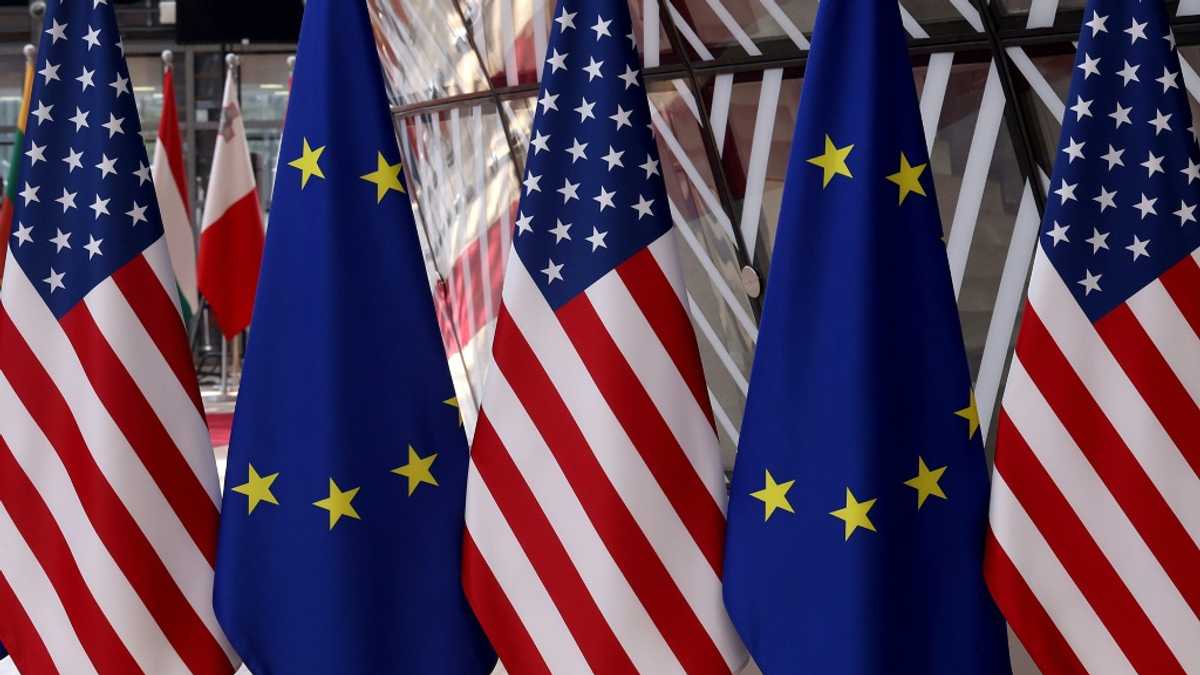EU Ministers Consider Response to Trump's Tariff Threat

EU Ministers to Discuss Trade Talks with the US Amid Rising Tensions
EU ministers are set to meet this Monday to discuss the bloc’s strategy for trade negotiations with the United States. The discussions come as Brussels works to prevent a potential 30-percent tariff on European goods, which has been threatened by former US President Donald Trump. This move has disrupted months of careful diplomatic efforts and raised concerns among EU officials about the stability of transatlantic trade relations.
Trump's sudden announcement over the weekend has created a sense of urgency within the EU. He stated that if no agreement is reached by August 1, the bloc would face sweeping tariffs. This development has thrown previous negotiations into uncertainty, despite the EU's ongoing efforts to reach a mutually beneficial deal.
European Commission President Ursula von der Leyen has reaffirmed the EU's commitment to finding a negotiated solution. She emphasized that the EU remains open to reaching an agreement, while also delaying retaliatory measures against separate US tariffs on steel and aluminum. This gesture of goodwill is seen as a sign that the EU is still interested in resolving the dispute through dialogue rather than confrontation.
The delay in retaliation has sparked hope that Trump’s latest threats, which also targeted Mexico, have not entirely derailed the progress made in previous negotiations between Brussels and Washington. However, EU officials remain cautious, acknowledging the unpredictable nature of Trump’s approach. They are preparing for the possibility of further actions if the 30-percent tariffs are implemented.
At the upcoming meeting in Brussels, EU diplomats plan to present an additional package of countermeasures that could be enacted if the tariffs are imposed. These measures could include tariffs on a range of US goods, including cars and planes. Earlier, the EU had threatened to impose tariffs on goods worth around 100 billion euros, but the final list is expected to be valued at approximately 72 billion euros.
A Unified Approach to Protect European Interests
EU member states have been working to maintain a unified stance on how to respond to US trade policies. Some countries export significantly more to the US than others, leading to differing perspectives on the appropriate level of resistance. French President Emmanuel Macron has called on the European Commission to "resolutely defend European interests" and has urged the bloc to prepare for potential countermeasures.
German Chancellor Friedrich Merz has echoed these sentiments, emphasizing the need for a strong response. He has engaged in recent communications with Macron, Trump, and von der Leyen, indicating a willingness to work towards a resolution. Italian Prime Minister Giorgia Meloni has warned of the risks of a "trade war within the West," highlighting the potential negative consequences for all parties involved.
The EU had initially planned to implement duties on US goods worth around 21 billion euros in response to Trump’s tariffs on metal imports. However, the decision was postponed in April to allow for broader trade negotiations. This pause has given both sides more time to explore a comprehensive agreement.
Trump’s Trade Policies and Global Implications
Since returning to the presidency in January, Trump has introduced a series of fluctuating tariffs on allies and competitors, causing volatility in financial markets and raising concerns about a potential global economic downturn. His administration has faced pressure to secure deals with trading partners after promising a wave of agreements.
So far, only two major trade pacts have been announced: one with Britain and another with Vietnam. Additionally, temporary reductions in tit-for-tat duties with China have been implemented. The EU, along with many other economies, was expecting its US tariff level to increase from a baseline of 10 percent on Wednesday. However, Trump extended the deadline to August 1.
In a letter published on Saturday, Trump cited the US's trade imbalance with the EU as justification for the proposed 30-percent levies. This new tariff is significantly higher than the 20-percent levy he introduced in April, which was temporarily paused until mid-July. The escalating tensions highlight the challenges of maintaining stable trade relations in an increasingly unpredictable geopolitical landscape.
Posting Komentar